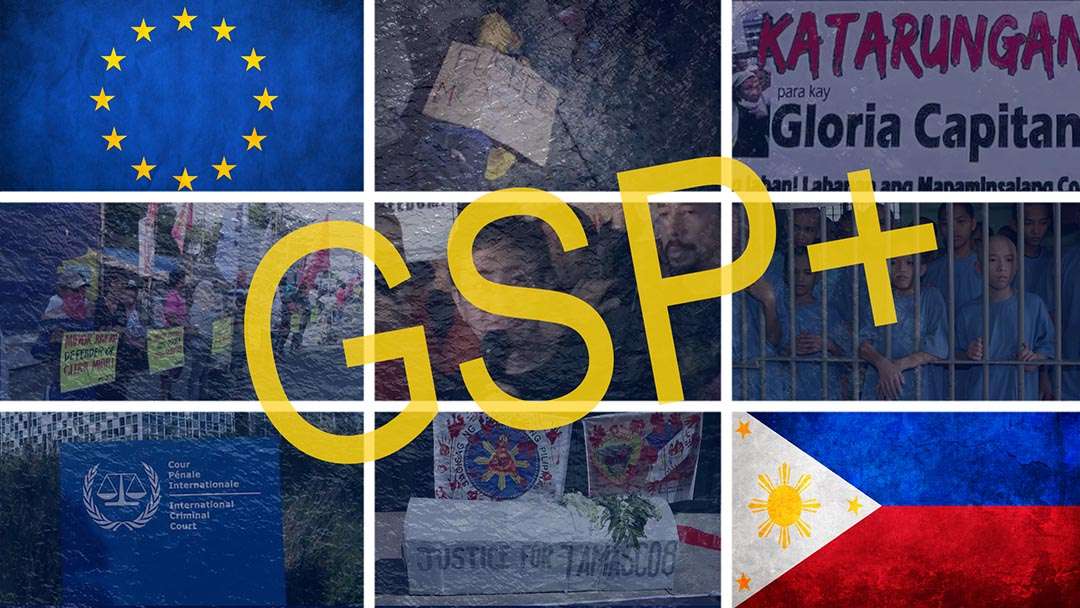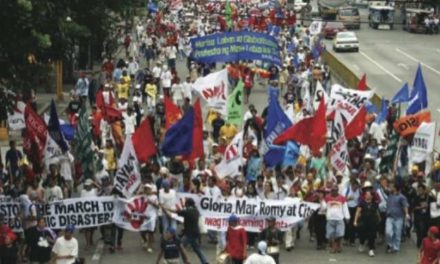The Philippines was granted GSP+ status by the European Union in December 2014. The special incentive arrangement for sustainable development and good governance otherwise known as GSP+ provides additional tariff preferences when exporting to the European Union to developing countries which are vulnerable due to a lack of diversification and insufficient integration within the international trading system.
The grant of these preferences to the Philippines was conditioned on its fulfillment of its obligations under 27 Human Rights and Labor Rights conventions. It therefore is clear from the start that in order to continue to benefit from the scheme the Philippine government must abide by its commitment to:
- Maintain ratification of the international conventions covered by GSP+
- Ensure their effective implementation
- Comply with reporting requirements
- Accept regular monitoring in accordance with the conventions
- Cooperate with the Commission and provide all necessary information
Under EU Regulations: “Where a GSP+ beneficiary country no longer fulfills the conditions, or withdraws any of its binding undertakings, the Commission shall be empowered to adopt a delegated act, in accordance with Article 36, to amend Annex III in order to remove that country from the list of GSP+ beneficiary countries.”
The regulations however allows for temporary withdrawal of the trade preferences for among others serious and systematic violation of principles laid down in the conventions.
Since the Duterte government assumed office in July 2016, the human rights situation in the Philippines has worsened. In the EU’s own global assessment of human rights and democracy (2016) it raised “serious concerns over the Duterte government’s war on drugs and the rising death toll, and more critically how the president’s statements and actions are encouraging a more aggressive approach by the police and vigilante-style extra judicial killings”.
To cite just a few major developments that indicate a worsening human rights condition in the Philippines: The notification of withdrawal from the Rome Statute, which it ratified in 2011; the tagging of around 600 activists as terrorists. The list included at one point UN Special Rapporteur on the Rights of Indigenous Peoples Victoria Tauli-Corpuz who has consistently championed human rights in the context of international treaties; the dismissal of charges against two known big time drug pushers, the continued attacks against human rights defenders, violations of ILO Core Conventions with the assassination of trade union organizers, violent dispersal of strikes, and the state’s continuing failure to address the strike of Citra Mina as mandated by the ILO Committee on Freedom of Association.
The latest worrying development is the continuing deliberations in Congress for the lowering of the minimum age of criminal responsibility. A bill has already passed the lower house and is now being debated in the Senate. Duterte himself has made it clear that he is strongly pushing an amendment to the existing law on juvenile justice to lower the age of criminal responsibility from 15 to 9 years old. After getting strong negative reaction from the public, the bill approved by the lower house sets the minimum age to 12 from its original proposal to lower it down to 9 years old.
Once approved by Congress and signed by the President, the new law would according to EU’s own GSP+ monitoring assessment report, be “contrary to Philippine obligations under the UN Convention on the Rights of the Child. While states parties, are legally bound to establish a minimum age ‘below which children shall be presumed not to have the capacity to infringe the penal law’ under the UN CRC, the UN Committee on the Rights of the Child recommends that “the minimum age should be at least 12 years, but preferably higher.”
We therefore call on the EU Commission to immediately commence the withdrawal procedure of the trade preferences granted under the GSP+ mechanism. #
Contact Joseph Purugganan for details: [email protected]







![[IN PHOTOS] In Defense of Human Rights and Dignity Movement (iDEFEND) Mobilization on the fourth State of the Nation Address (SONA) of Ferdinand Marcos, Jr.](https://focusweb.org/wp-content/uploads/2025/07/1-150x150.jpg)

